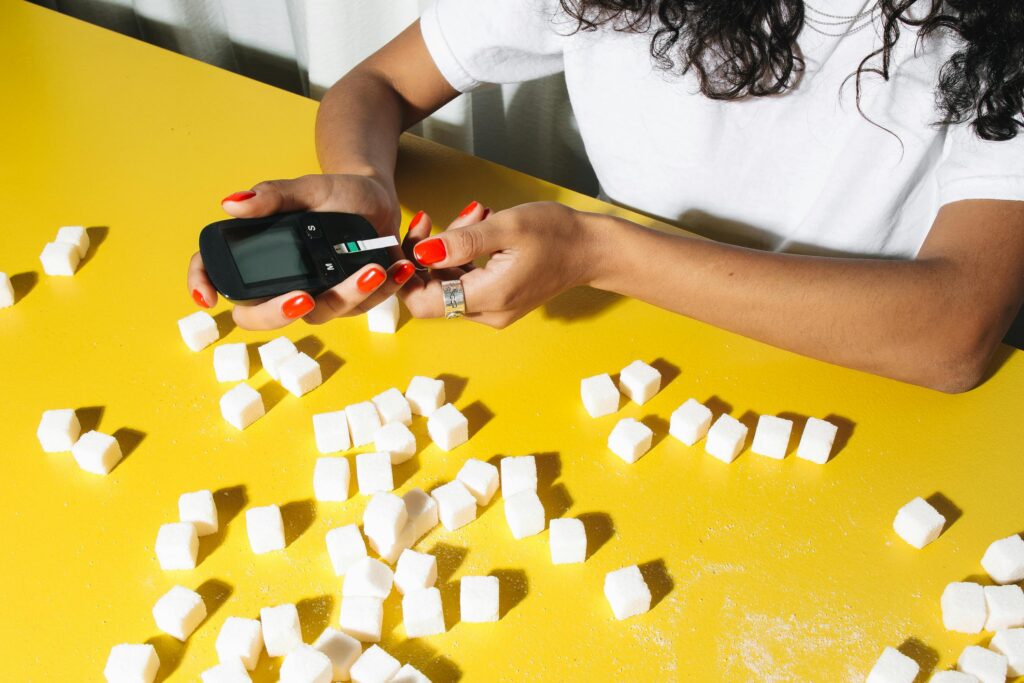Of all the long-term illnesses in Nigeria, none is more common than diabetes. According to the International Diabetes Federation, over 3.6 million Nigerians are living with diabetes, and that number is expected to rise. Even though the disease is prevalent, there are still a lot of misconceptions about it.
Diabetes is not a death sentence. With the right medical team, you can live a normal life and expect to live well into your 80s or 90s. The key thing is to spot diabetes early.
So, how do you know if you might have diabetes?

Early Signs of Diabetes to Watch Out For
Many people with early-stage diabetes might not experience any symptoms at all. However, there are some common signs to be aware of:
- Increased thirst and urination: Our bodies use insulin to convert sugar (glucose) into energy. With diabetes, the body either doesn’t produce enough insulin or can’t use it effectively, leading to excess sugar in the blood. The kidneys try to flush out this excess sugar, resulting in frequent urination and increased thirst.
- Unusual hunger: Even though you might be eating more, your body’s cells aren’t getting the glucose they need for energy, leading to constant hunger pangs.
- Fatigue: The lack of usable energy due to high blood sugar can leave you feeling tired and sluggish.
- Blurry vision: High blood sugar can affect the lenses in your eyes, causing blurred vision.
- Slow-healing wounds: Diabetes can impair blood flow and slow down the healing process.
- Frequent infections: High blood sugar weakens the immune system, making you more susceptible to infections like skin infections or thrush.
What to Do if You See Signs of Diabetes
If you’re experiencing any of these symptoms, don’t hesitate to see a doctor. Early diagnosis and treatment are crucial in managing diabetes and preventing complications. Your doctor will likely conduct a blood test to measure your blood sugar levels and diagnose diabetes.
Living with Diabetes
There are different ways to manage diabetes, depending on the severity. These may include:
- Lifestyle changes: Maintaining a healthy weight, eating a balanced diet, and exercising regularly are essential for managing blood sugar levels.
- Medications: These may include oral medications or insulin injections to help regulate blood sugar.
- Blood sugar monitoring: Regularly checking your blood sugar levels helps you and your doctor track your progress and adjust treatment as needed.
How can Telemedicine help with diabetes care?
Telemedicine, which involves using technology to deliver healthcare remotely, can be a game-changer for diabetes management in Nigeria. Here’s how:
- Increased access to care: Telemedicine allows you to consult with doctors and diabetes educators from the comfort of your home, work, office or religious institution, overcoming geographical barriers.
- Improved monitoring: Telemedicine platforms can connect you with tools for remote blood sugar monitoring and data sharing with your doctor.
- Enhanced support: Telemedicine can facilitate regular consultations with healthcare professionals for ongoing support and medication adjustments.
Get the help you deserve
Remember, diabetes doesn’t have to control your life. By recognising the early signs, seeking medical advice, and adopting healthy habits, you can effectively manage your diabetes and live a long and healthy life.
If you or anyone you know might have or is living with diabetes, you can pay us a visit at our Chevron Lekki clinic or book an online consultation if you live far away.





